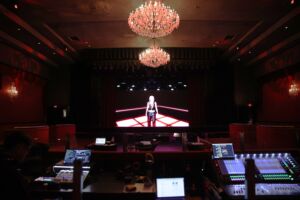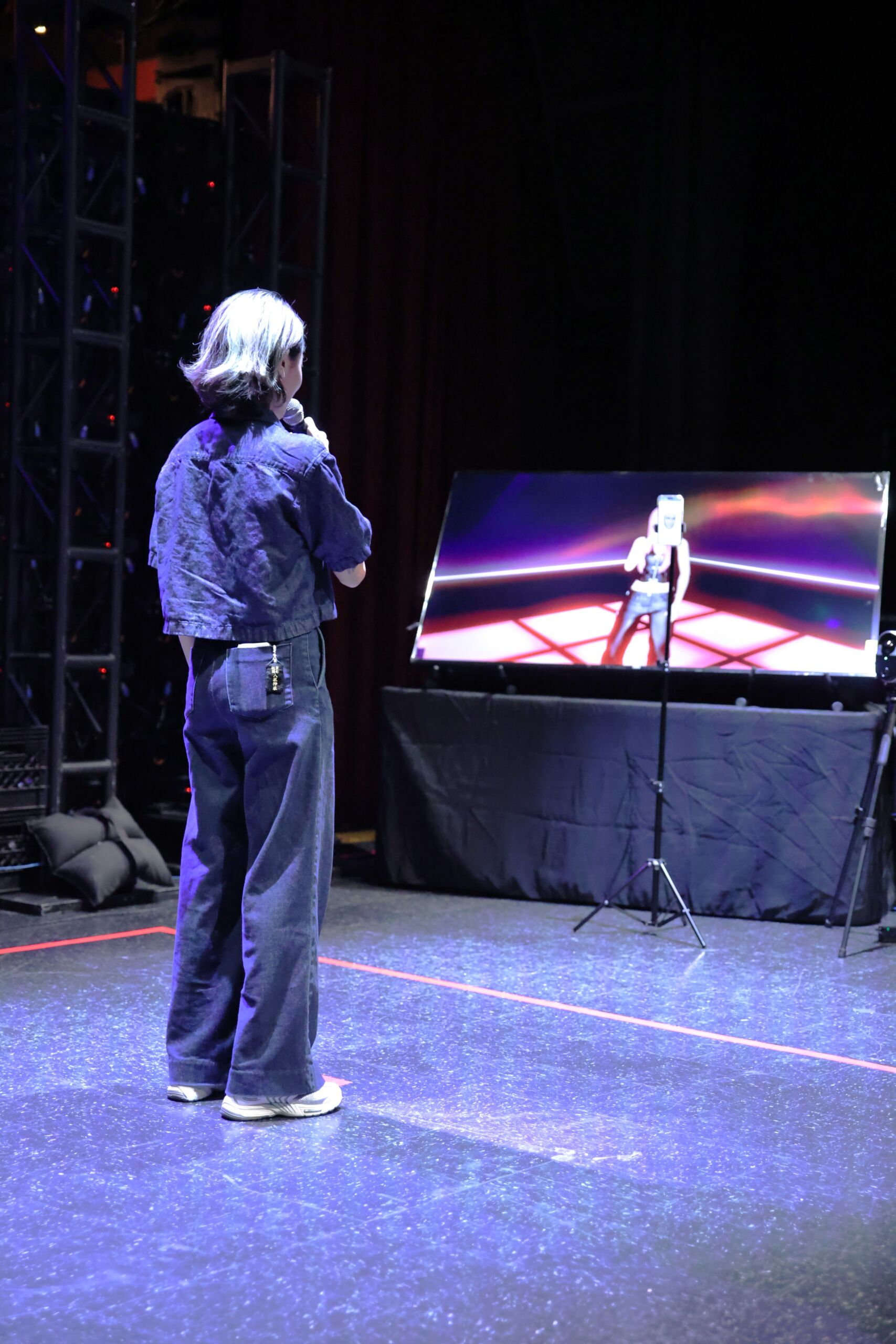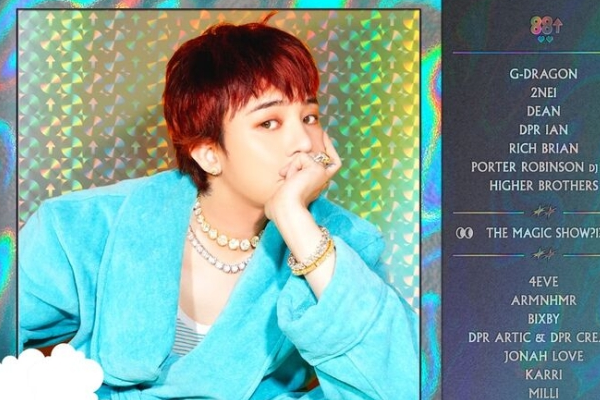At a secretive L.A. audition, over 100 masked hopefuls competed to become virtual idols in what could be the future of global entertainment
By Chase Karng
The scene at Los Angeles’ El Rey Theatre on September 8 felt like something out of a cyberpunk fever dream. More than 100 aspiring performers, their faces hidden beneath umbrellas like a surreal protest, filed into the historic venue for what Galaxy Corporation, the AI entertainment juggernaut behind G-Dragon, was billing as the future of K-pop. This was not a typical idol audition. It was a blind casting call for a virtual group where human performers would power digital avatars, their identities permanently concealed behind pixels and code.
“The biggest change we felt on the ground was the density of the media and fan ecosystem,” says Gyuhyuk Song, Senior Lead of IP Music at Galaxy Corporation, in an interview with RAIN FM / Radio Seoul. With more than a decade at SM Entertainment, Song has overseen projects for artists like TVXQ!, Super Junior, EXO, Red Velvet, and NCT. He notes that contestants flew in from Korea, Germany, Hawaii, and across the U.S. This reflected the audition’s global pull. “Applicants of many nationalities participated actively and created great energy.”
The audition process itself blurred the line between performance art and Silicon Valley disruption. Contestants were guided backstage by masked staffers, their anonymity guarded at every turn. In the green room, vocalists ran scales while dancers stretched, preparing covers of everyone from Lauryn Hill to Justin Bieber. They were evaluated less for raw showmanship than for how convincingly the performances might translate to avatars.

“For virtual artists, the most important quality is authenticity,” Song explains. “We look for musical expressiveness, the ability to convey emotion through vocal tone and breath, as well as movement skills that show precise rhythm and body control in a virtual environment.”
But what does authenticity mean when filtered through a digital mask? Galaxy’s approach suggests a recalibration of star power, shifting the focus away from looks or physical presence toward what Song calls “character: the fusion of voice, movement, and individuality that remains recognizable even through a virtual avatar.”
The company’s preparation was meticulous. Technical rehearsals and simulations were conducted in Korea before the L.A. showcase, supported by a custom “markerless motion-capture pipeline.” Privacy was paramount. How do you safeguard performers whose appeal rests on anonymity?
Still, moments of raw humanity broke through. One contestant ditched the expected K-pop track for an old-school R&B number, carving out a personal emotional arc that cut through the tech. “It was a moment where human authenticity clearly transcended the virtual,” Song recalls.

After the audition, one anonymous participant shared their story. The contestant had flown in from Paris and explained that covering the cost of the trip was so expensive they had turned to social media fundraising just to make it. The account underscored not only the global pull of the audition but also the sheer passion driving performers willing to bet everything on a chance at digital stardom.
That tension between human expression and digital mediation sits at the heart of Galaxy Corporation’s gamble. Real-time avatar synchronization during auditions confirmed this was not just a gimmick but, as Song puts it, “a new stage language” with “genuine persuasive power.”
For many, the project carries broader meaning. Participants described themselves as cultural bridges, embodying a generation fluent in both digital and physical realities, and equally at home with Eastern and Western pop cultures. It is a vision that mirrors Galaxy’s ambition: not just to cross borders, but to erase them.
As finalists move to the next stage, the company is betting big. In a world increasingly lived through screens, the most authentic thing you can be is an illusion, as long as a real human soul powers it from behind the glass.
The avatar revolution may have started in a theater in Los Angeles, but its future remains uncertain. What is clear is that K-pop’s next frontier may not be a stage at all, but the metaverse itself.



